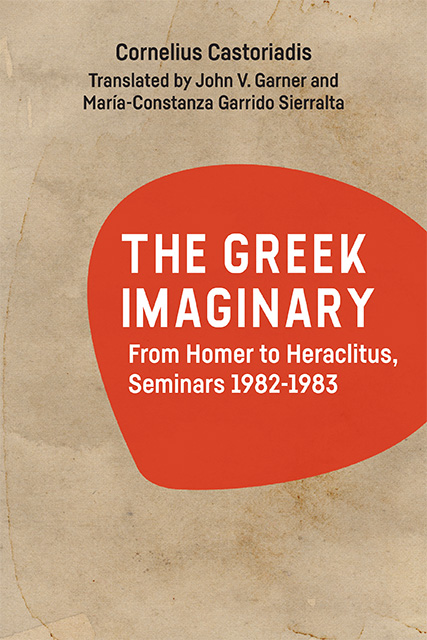IV - Seminar from December 1, 1982
Published online by Cambridge University Press: 20 October 2023
Summary
Homer. The subject is, as we have seen, infinitely complex. The interpretations have proliferated contradictorily since antiquity, already from the time of Xenophanes and Plato, burdened sometimes with extreme naϊveties. One of these is obviously the retrojection of what seems self-evident for the interpreter from such and such era, or the refusal to see the difference and even the otherness of what is deposited in these poems. This is a naϊvety from which, as I told you in our first seminar, one can never totally free oneself. One always speaks starting from something, from one’s era, from the society in which one lives. One may certainly criticize one’s own prejudices, preconceptions, and so on, but how could one ever pretend to unbind oneself totally? There’s another naϊvety, symmetrical thereto and just as weighty, which is above all that of the moderns, and which comes down to dealing with the poems—or, for that matter, the entire Greek world—starting from prejudices of the positivist type, which I would almost be tempted to call “ethnologizing.” Through a sort of variant of the enthnocentrist prejudice, they erase every difference between this Homeric world and the other bygone worlds we know of—and this was done by important authors—in order to treat it like a world that’s primitive in the most naϊve—I would say most mindless—sense of the term, i.e. a world that would be situated in the first stages of hominization.
If you think I’m exaggerating, I direct you to a very serious, relatively recent book, the reputation of which is quite high, i.e. The Discovery of the Mind by Bruno Snell. There are two or three chapters on Homer in it, in particular, where one finds this unreasonable assertion—which of course claims to be founded on philological givens and even on those of the plastic arts—according to which the Homeric world has yet to manage to conceive of a unity of the human being and in particular of his psychical powers.
- Type
- Chapter
- Information
- The Greek ImaginaryFrom Homer to Heraclitus, Seminars 1982-1983, pp. 55 - 78Publisher: Edinburgh University PressPrint publication year: 2023



